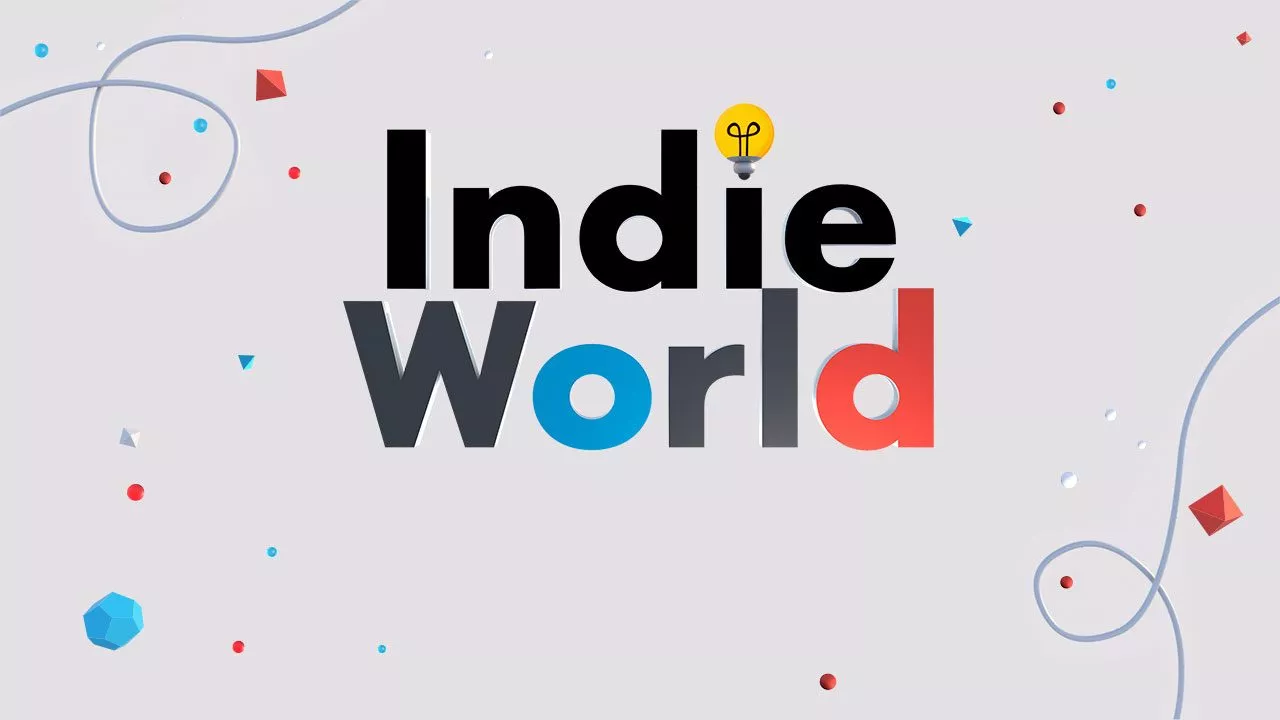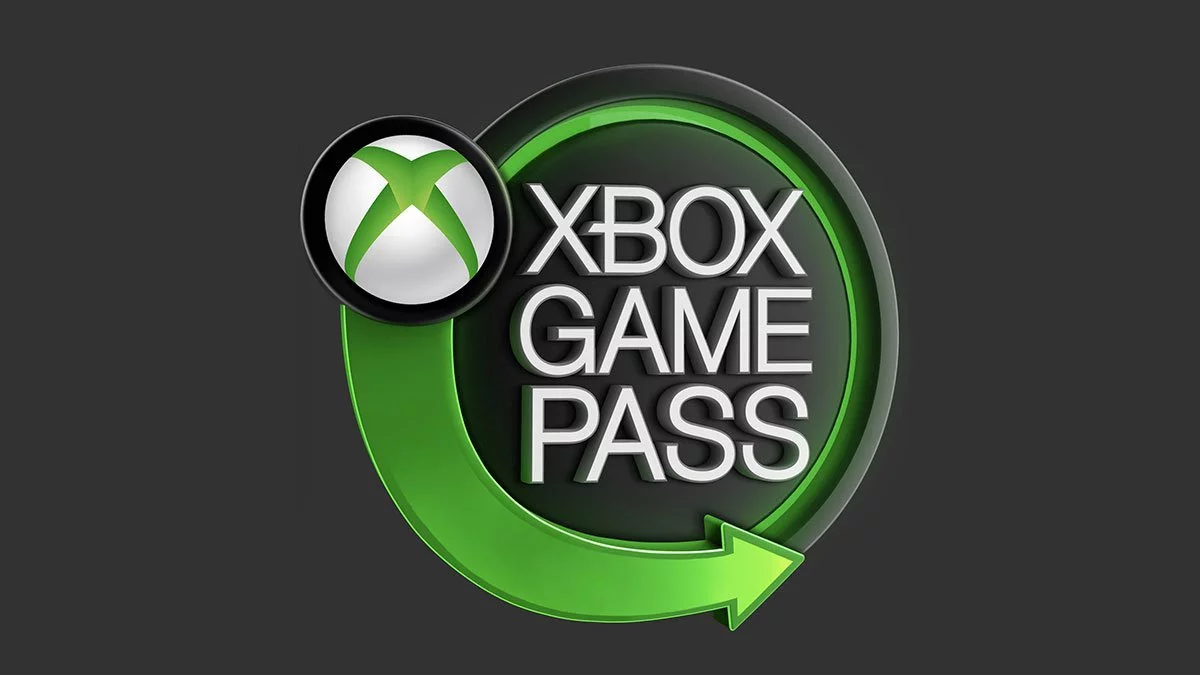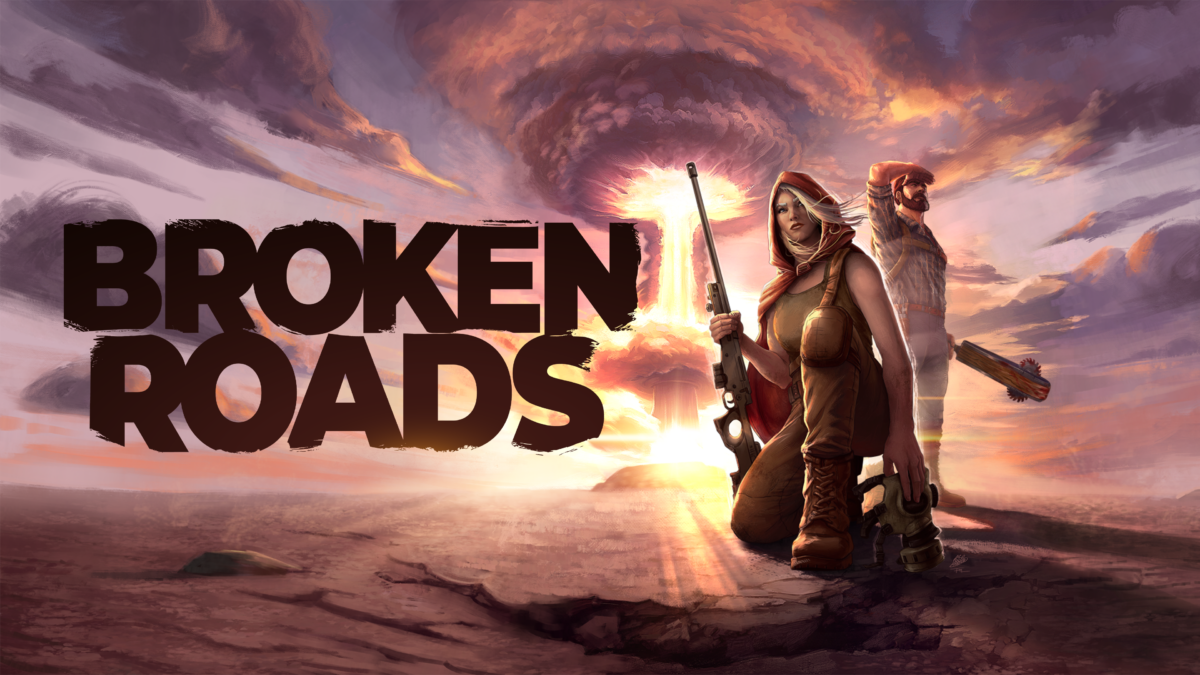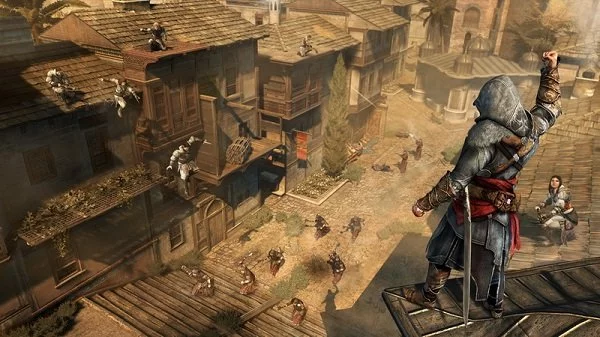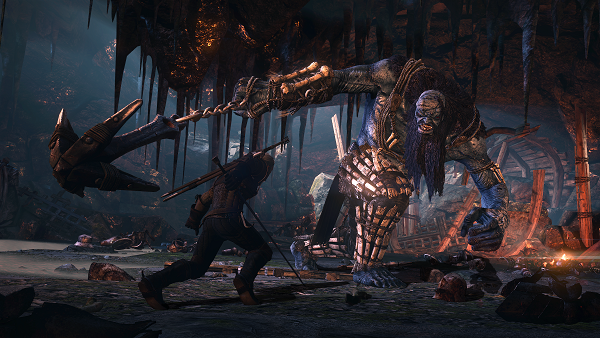Microsoft versus Sony, Battlefield versus Call of Duty and Forza versus Gran Turismo. These are some of the rivalries that can get people talking about console wars. “Game On or Game Over” is your place to get inside the minds of Nicholas and Andy as they seek to find the true meaning of gaming and tackle some of gaming’s most controversial subjects. Both are award winning authors – although the awards haven’t been mailed or created yet — but trust them. Would they lie to you?
Nicholas: Last week we discussed E3 2014 – what we liked and what we didn’t. We spoke about our fears of Sony adopting in greater force a freemium business model and also the risk of seeing less new IPs and more reboots and remakes. There was however one potential lowlight that we didn’t touch on, and I’d like to spend some time doing so this week.
DICE, the developers behind the Battlefield franchise, recently mentioned that they were considering the possibility of implementing an ‘early access’ system for some of their upcoming games. Essentially what this would entail is allowing gamers to pay a small fee to check out and play their titles pre-release (as in, during their development). Now the reason why I wanted to bring this up was due to a series of tweets made my Jim Sterling where he expressed his disgust at DICE for essentially planning to get more money from gamers by technically selling them an unfinished product. Despite the fact DICE mentioned that this would allow them to facilitate a smoother and more stable launch, Sterling suggested that it was a cheap tactic to make more money, mentioning that while it would make sense for indie developers to go down this route, major companies shouldn’t need more money.
So to kick things off I wanted to get your opinion on the above. Do you think DICE’s reasons are logical and fair, or do you think Sterling has a valid point, in that it comes across as just a sneaky way to nickel and dime gamers out of more money? Would it be more reasonable to see this as an option for smaller studios than the larger ones?
Andy: Ah, early access. It was really only a matter of time before it found its way to consoles. It’s something that has become more and more prominent in the PC gaming world – just look at the new release section on Steam and you’ll see plenty of early access games. I can see why a developer/publisher would at least look at it as an option though as they are essentially getting people to pay them to help them test their game. Just think about that for a minute – how many other industries can convince consumers to pay them to help test a product or service? I don’t think I’ve ever heard of an automobile manufacturer asking people to purchase their latest prototype to help them test it. Or someone like Dell having users pay to test a new chip or motherboard.
From a developer stand point they can get some cash flow while at the same time getting people to test their games. Reading the Game Informer article DICE General Manager Karl Troedsson said, “It is something we are considering, not from a business standpoint, but from one of creating quality in our products.” As a gamer this irritates me for two reasons. One being by saying they are considering charging for early access it IS about business and generating more revenue. Don’t insult gamers by trying to call it something that it’s not. Secondly, and this is something that has become more and more prominent in games lately, that developers are publishing games that still have glaring flaws. To twist it in such a way so that it sounds like gamers are being afforded an opportunity to help create more quality is a bunch of bullsh*t.
When a game is released it should work as it’s intended. It’s really that simple. When I buy a game, I expect all the promised features to work. I don’t want to come across as bashing DICE because I genuinely like playing Battlefield, however, Battlefield 4 on release was a broken mess of a game. Still to this day there are issues with singleplayer save files just disappearing, and I know firsthand how frustrating that is as I’ve lost my SP saves four separate times. I am more than willing to participate in an alpha or beta to help the developer work on balancing issues, system load tests or what have you, but I refuse to pay a fee for me to help a developer do something that they should fundamentally be doing in the first place.
Gamers have railed against microtransactions and how invasive they have become over the past couple of years. I fear that “early access” is the micro transaction of the future and we will see more and more of it. What about you though, who do you think early access benefits more; gamers or the developer.
Nicholas: I think the answer to that question is surely the developer. They can try and spin it however they like by calling early access as a chance for fans to experience the next instalment in their favourite franchise before its release, but at the end of the day, the reasons behind them are only there to help the developer make their product. I’ve been giving some thought to what you said above about how they are disguising early access as a way to generate more revenue, and this has made me reflect on the recent betas for Destiny and Battlefield Hardline. Now I didn’t participate in either so correct me if I’m wrong here, but gamers didn’t have to pay to take part, did they? If not, it raises the question – what’s the difference between early access and beta access? If both offer essentially the same thing – giving gamers a chance to play a game prior to its launch – then why should one need to be charged and the other not? As we’ve seen with betas in the past, if the game is popular enough then people will be willing to participate, so why would a developer decide to go down the route of charging for early access if it wasn’t for any motive other than more revenue?
Moving on though, the issue of games being released with obvious flaws/bugs is a big issue and one that I’d like to touch on further. I didn’t spend a lot of time with Battlefield 4 so I never came across the save file corruption problems, but it does remind me of F1 2012 and it experienced the very same issue. For a couple months, if you exited the practice session while you were doing tests on your car, the next time you booted up the game your save file would be lost. Now in a game like Battlefield where the SP has never been its strongpoint, I can understand why losing a SP file mightn’t be the biggest loss (although that’s not an excuse for it to happen), but in something like F1 where you can spent upwards of an hour in each session perfecting your lap times before a race, to lose it even after a few races in the calendar is a massive issue and a whole lot of work to repeat. To go on a slight tangent if I may, I wonder why I don’t hear more stories of people returning their game to retailers asking for a refund because it’s broken. Really, which other product would you just accept that it fails to work properly and not demand your money back?
Keeping with the topic though, I too consider it a joke that it seems testing has become almost a non-priority with developers and publishers in the last few years. It’s unrealistic to expect that a game will be without fault every time, but it seems like a growing trend that gamers come across too many instances where obvious problems should have been identified and fixed prior to launch. I was having a conversation with a friend of mine who is involved in game testing, and he mentioned that there was a glitch he found while testing the game (which he reported) that he then came across again in the final build. Now this example obviously doesn’t exactly lead my next question in the best light, but putting aside the situation above, how we feel about it being purely a chance for companies to make more money and whether we think QA testing should be done by the developers themselves, if early access and beta periods allow developers to harness gamer feedback to identify and resolve glitches and bugs, do you think that early access is a good thing? Do you think that it could lead to ultimately a better product for everyone?
Andy: Remember the article we wrote a couple weeks ago, about diversity and games? This is a reverse of that. With diversity in games the onus is on the gamer to help developers and publishers know what we want in games. Things like female protagonists or something different than the angry sullen white male as the lead character, that’s on gamers to help push forward. However, testing a game and making sure everything works beforehand is not the job of a gamer. That is something that needs to be squared away before a game is released. If a developer truly needs to test things out for whatever reason it’s perfectly acceptable to have an alpha or beta where they invite however many people as they need to test out whatever they need. To term that ‘early access’ and charge gamers for what should already be something that’s done is a travesty to the industry. There is at least one early access game on Steam that I know of that has been “early access” for almost a year now. On top of that, the developer of this game is reportedly working on a new game while leaving the other one in early access stage even longer.
I remember back when I first started playing video games at home, when I went to the store and bought a game, what I brought home was the finished product. There were no updates, no patches and no additional content – the game in the box was the full complete product. Developers had to make sure that everything was working as it was supposed to because there was no safety valve for fixing a broken game. I understand that as games get bigger and more complex that there are more and more things that need to work in harmony with each other. The more things you have going on the more things that can go wrong, that’s simple and understandable logic. In my opinion, that just means the testing phase of the game needs to be extended to ensure the best product is released to customers. I would rather a game be pushed back a couple months and have a flawless release, than a game be released with a myriad of problems.
It seems that developers are becoming too comfortable with the option of releasing a patch or update to fix something that should have been caught in QA testing. It’s frustrating to buy a game on release day only to find it may be unplayable until the developer can make a patch and get the patch through certification then finally to my console. That process can sometimes take a month or more, and in some cases (such as Battlefield 4) even after numerous patches there are still things wrong with it. From the amount of patches that games have taken to fix the past couple years it seems like publishers are more concerned about release dates than they are releasing completely polished games. I think most gamers would be happy to help with a beta for a game, but to term it an early release and charge for it seems underhanded at best to me.
The whole idea of early access is a slippery slope in my opinion. I can understand early access more in the PC world because they can push out updates and tweaks pretty much at will. Whereas, on consoles there is a process that needs to occur before anything is pushed to the end user. Do you think that process that is in place will stop early access games before they even start, or can you see instances where developers will push through those barriers to bring it to consoles?
Nicholas: If developers and publishers want to make it work, then they will. The PC platform has always seemed like a testing ground of sorts when it comes to the gaming industry, and if these companies can make something work for PCs then there’s no doubt in my mind that they’ll try and make it work with home consoles. Freemium titles and microtransactions are a perfect example. I don’t know what the first freemium game for home consoles was, but once developers starting seeing the success of titles like Farmville or Candy Crush as only mere Facebook games, developers tried to adopt the same practice for platforms like the Xbox One and PS4. Killer Instinct is a perfect example and we spoke about how Sony wants to go down this path in the last Game On or Game Over article too. If they can get a beta out for Destiny and Battlefield Hardline in time for E3, then I’m sure they can get early access games out without a problem either.
All this said though, it brings me to another topic I’d like to explore, and it’s something I’ve been wondering for a while now. So far in this week’s article we’ve been discussing developers – developers wanting to use early access to get more money and developers aren’t doing enough QA testing prior to a game’s release, but I wonder whether it’s not the developer we should be pointing fingers at, but the companies above them – that is, the publishers?
We often like to refer to the two interchangeably – no-one ever says “Need For Speed ProStreet was horrible, Black Box need to raise their game”, it’s always, “Need For Speed ProStreet sucks and EA need to raise their game”. In this situation though we need to be clear – one makes the games and the other distributes them. Even in the case where a publisher owns a development studio, it’s not to say that the views of both are always aligned, and I’ve been wondering if this is the reason for a lot of disappointments in the industry as of late. We hear countless stories in the entertainment industry where a TV show might be going well but due to the decision of the broadcaster the series was cancelled – who’s to say this doesn’t happen in the gaming industry either?
In a recent interview Lorne Lanning (creator of the Oddworld franchise) said, “Why did Battlefield 4 ship? You know that team was crying. You know that team knew that game wasn’t ready to go. Someone made a decision that the shareholders are more important than the customer. How do you take that jewel and ship it with dirt all over it?” This makes you think – how often are poor games the result not of a developer deciding to not bother with properly designing or testing it, but due to unrealistic expectations, demands or decisions by the publishers that are ultimately controlling them? In speaking with a friend recently he mentioned that the developers behind Watch_Dogs didn’t even know Ubisoft were going to drop a release date at E3 2013 and when they did the game wasn’t even close to being finished. As a result it had to be delayed because they just couldn’t meet the deadline. Consider the fiasco with Assassin’s Creed Unity and the lack of female characters for multiplayer. Who’s not to say that the developers had every intention of including a female character, but due to the budget and time constraints it just couldn’t be done? What do you think of this though – is there a chance that it isn’t a case of sloppy developers, but publishers who don’t understand the creator’s vision/think they can do it better? Does this explain why indie games seem so much more ‘fun’ and pure than some AAA titles?
Andy: I don’t think that’s the biggest reason why some indie games are better than AAA titles. For me, part of the reason indie games appeal to me, is because they usually pick one or two things and do them exceptionally well. Whereas it seems like the majority of AAA titles try to cram a bunch of gameplay mechanics, story elements, side quests, collectibles and styles into one game and it quickly becomes bloated and tedious versus sheer stylized fun. It’s reasonable to assume the more features that are stuffed into a game the more things that could go wrong, yet developers seem insistent on adding as much as they can. Sometimes those features don’t even make sense or stray from the game or series. Just look at the tower defense missions in Assassin’s Creed Revelations. Those were added at a time when tower defense games were the hot ticket item so why not add one to a game about assassins?
I’m not sure who is at fault more for a game that is released broken, the developer or the publisher. We can all agree that developers are under a lot of pressure to hit release dates, and that publishers (for AAA titles anyway) often spend ridiculous amounts of money on advertising leading up to release. Yet, someone in that chain of command from either side has to step up, be honest and say “Hey, this game isn’t ready we need to push it back.” It just seems that more harm could be done to the brand/series if a game is released riddled with bugs and glitches versus being honest with fans and communicating that in order to release the best game possible it needs to be delayed. Again I can’t speak for all, but I’d rather wait a couple extra months than buy a new game and find it unplayable. It just feels like more and more games are released with issues on release day because there is always the easy fall back of releasing a patch down the road.
I have never had a job, or known anyone who has done QA work on a game before. I have read a couple articles about how bugs are reported and the severity level of a bug, but beyond that I’m not sure what the process is. As games become larger (just think of everything that can be done and explored in Skyrim), it makes sense that more and more QA should be done. My concern is that QA hasn’t really changed enough to adapt to today’s scope of games. In that respect it makes sense to expand QA, if a developer can’t do that, then an alpha or beta makes sense. It’s basically free testing to help find issues faster. To then turn around and use that asset (free help testing things) into a potential revenue stream… that rubs me the wrong way.
I have been a gamer long enough to have lived through the cyclical thought patterns of developers/publishers. When I first started gaming there were countless times a game would be scheduled for release only to be pushed back. Being that the internet wasn’t around yet, we usually didn’t find out until the week of release. Sure we’d get frustrated, but it was mild frustration versus being pissed off we got a broken game. Then there was a paradigm shift where it was almost like developers/publishers said it’s never OK to miss a release date. With the internet it made it easy because patches could be distributed directly. Over the past year we’ve seen some big AAA game start to be pushed back; games like Elder Scrolls Online for Xbox One and PS4, Witcher 3, Watch_Dogs, and The Crew. I know some gamers are a littler irritated when a game gets pushed, but I’d much rather have that that than purchasing it and becoming frustrated with issues that pop up during gameplay. Do you think this shift by some developers/publishers to be willing to push games back is a result of gamers voicing their opinions on games filled with glitches and bugs on release? Has that feedback been heard by those in charge, or do you think there is another reason we’re starting to see it more often now?
Nicholas: I don’t think you’re alone in that opinion to be honest. Sure, every gamer has that feeling of disappointment when the game they were waiting for is delayed, but I think deep-down, everyone would be willing to wait months or a year extra if it meant that the final product would be a seriously solid game. A great example was with South Park: The Stick of Truth. It was pushed back a few times from what I remember, but come it’s release, people weren’t complaining about how long they had to wait, they were talking about how fun of a game it was. I think developers and publishers need to know that delaying a game to result in a better product will have a far greater outcome than simply rushing it out to meet an initial release date. That said though, how interesting was it when the announcement that Watch_Dogs was going to be delayed and Ubisoft’s share price took a massive hit?
Perhaps I’m just being optimistic, but I think developers and publishers are realizing now more than ever that gamers aren’t happy with some of their decisions. Like we discussed in our very first Game On or Game Over article, Microsoft realized how wrong they were with their initial ideas when they first revealed the Xbox One, and as a result they back-flipped completely in the matter of months. Ever since the new head of Xbox came into his position he’s been talking about how wrong they got it at last year’s E3, and it was only recently that Andrew Wilson, CEO of EA, discussed how the launch of Battlefield 4 left much to be desired. The sales of the Xbox One suffered tremendously at the hand of the PS4 and they still continue to as well – if that isn’t a good enough example that gamers are starting to vote with their wallets then I don’t know what is.
You mentioning all those AAA games that have been delayed raises an interesting point, and I think it would be appropriate if we saw out this week’s article discussing it a little further. Usually, a delay in a game is sometimes met with cynicism that it’s facing tough times. I’ve heard countless comments from both gamers and reviewers alike that Drive Club was going to be nothing short of disappointing given how many times it’s been delayed, yet recent previews suggest that the game is shaping up to be quite the opposite. What do you think? If you notice a game being delayed multiple times do you take it more of a case of development troubles, or just the creators taking the necessary amount of time to make it perfect? Do you think my optimism above has merit, or do you think the future is only going to get worse as far as exploiting gamers and our wallets is concerned – where early access, microtransactions and buggy games become more prevalent?
Andy: My answer to that is two-fold. Just based on recent happenings in the industry, I’d like to be optimistic too and say that more developers seem to be OK with delaying their games so that it will benefit gamers. Sure some will be frustrated at delays, but once there’s a steady stream of games for the new consoles it won’t really have that big of impact. Bringing up the stock value of Ubisoft when Watch_Dogs was pushed back raises a conundrum for both publishers and developers. Which is the worse pill to swallow? Delaying a game and disappointing investors or releasing a glitchy game and disappointing consumers? Hopefully the trend is to make the choice that ultimately benefits the gamer, because after all without gamers investors will have nothing to invest in.
Based on E3 and recent trends however, I think that developers and publishers are going to continue to look at ways to wring more and more money from gamers. Just look at E3 with all the “exclusive” DLC for one system or another, “exclusive” betas as well. Hell, there’s even been a growing trend that they not only want you to preorder the game months before it comes out, but now want you to start preordering the season pass for a game that you haven’t played yet, that you may not even like… and with very little word (other than the price) of a season pass that you know nothing about. Don’t worry if you don’t get the 16 different retailer “exclusive” preorder bonuses either, because in a couple months after release you can buy those too. I wouldn’t put it past someone like Activision to do microtransactions for each ammo clip or grenade. Turn 10 is probably looking at charging for every tank of gas too.
I understand that not every game is going to be perfect on release, yet the practice of developers being OK with it is alarming. This is an issue that gamers really need to express their dissatisfaction over. I cannot think of any other industry that it would be acceptable to release a broken product. It seems that developers have become complacent due to the ability to release patches. I feel sorry for those gamers who don’t have a stable connection to the internet or have data caps on their ISP services. We’ve talked about DLC practices before and sadly I don’t think we’ve seen the worst of it yet. I’m guardedly optimistic that developers have made that turn again and it’s now once again acceptable to delay games. Sure, there will always be doubts when a game is delayed – just look at The Last Guardian and Rainbow Six Patriots for starters. Yet at the end of the day, when I walk out of the video game store and put the disc in my console I want the best experience I can possibly get with whatever game it is. If it takes pushing the game back six months then I’m OK with that. My game backlog is plenty long, especially with the Steam sales, so I’ll always have something to play. I’m OK waiting just a little bit.
Tune in next time for the next instalment of Game On or Game Over. If you have any ideas for our next article, feel free to contact Andy or Nicholas on Twitter.
This article may contain affiliate links, meaning we could earn a small commission if you click-through and make a purchase. Stevivor is an independent outlet and our journalism is in no way influenced by any advertiser or commercial initiative.




